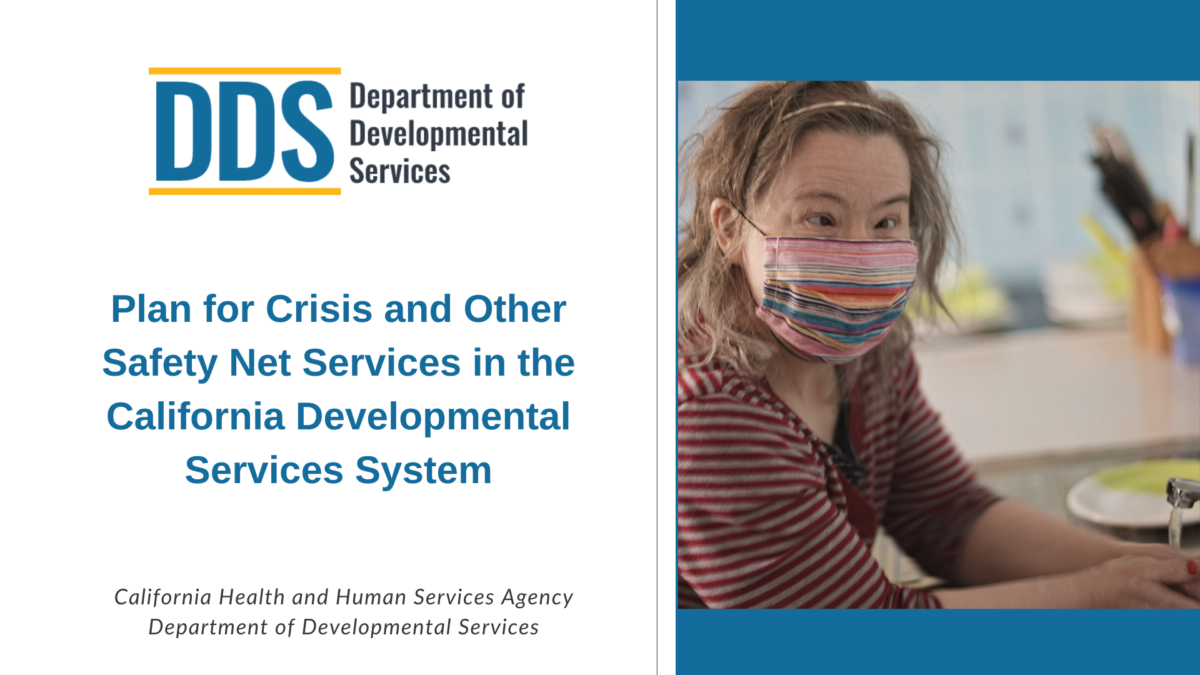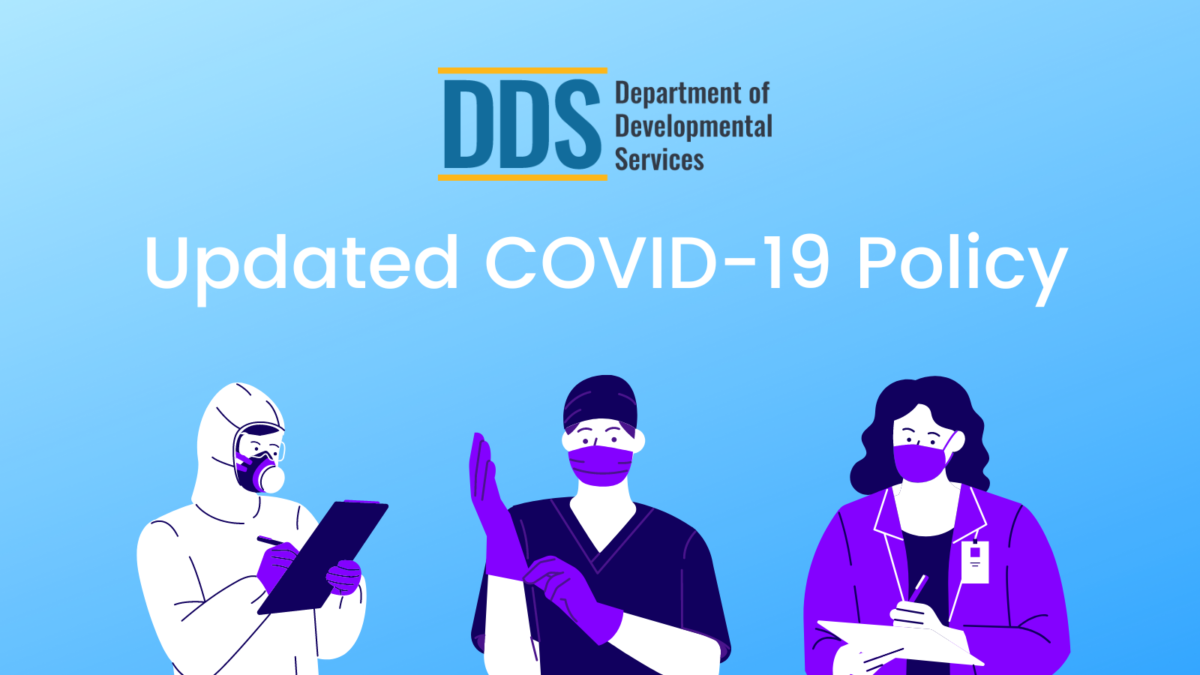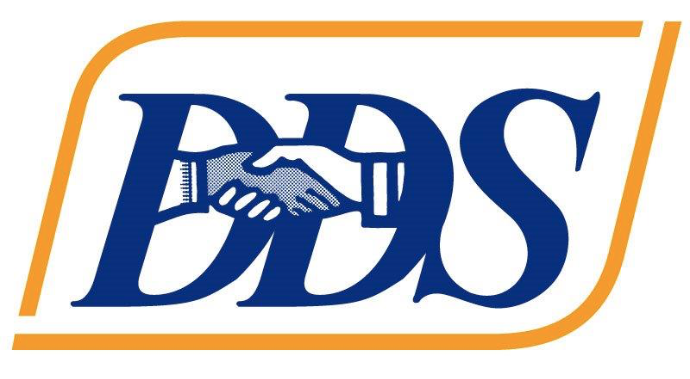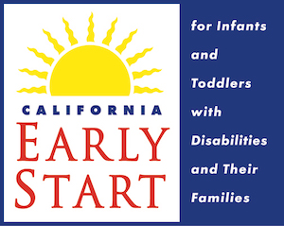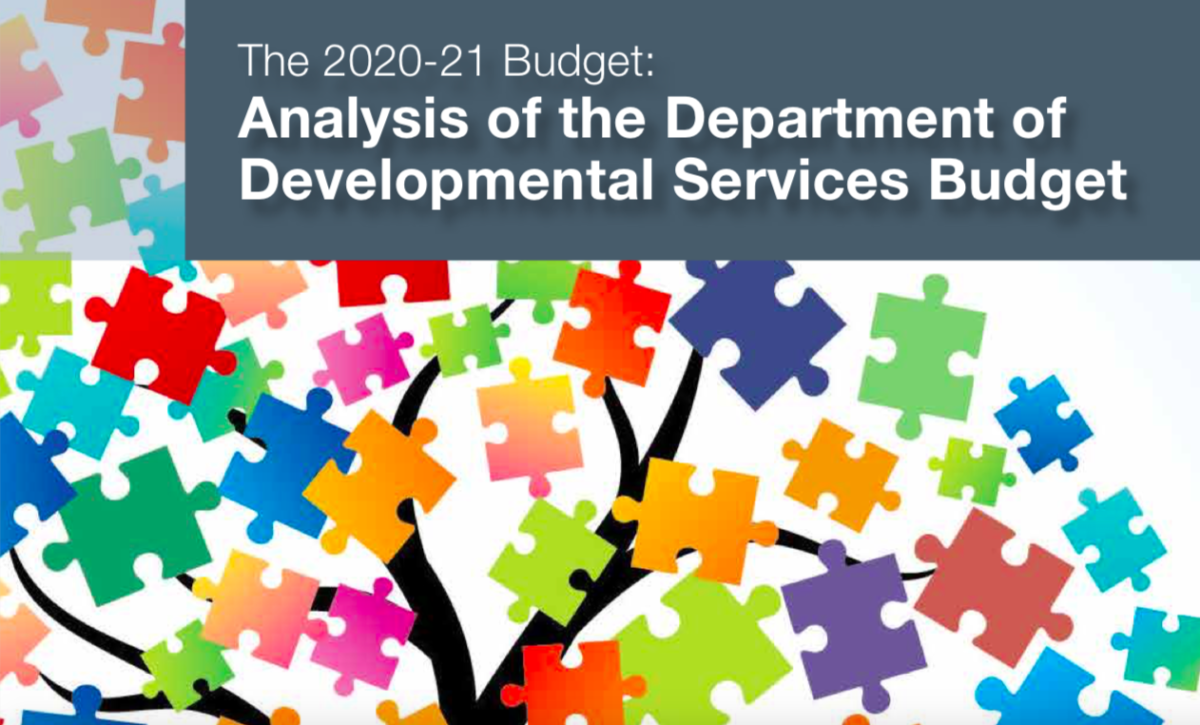The Legislative Analyst’s Office (LAO) is a nonpartisan office that provides fiscal and policy information and advice to the Legislature, and often produces reports on various topics, including developmental services. Friday, February 7th, the LAO released a report analyzing the Governor’s proposed budget for DDS. The report included a rejection of the proposed “Performance-Incentive Program”, and approval of other proposals. The full report can be viewed here and the executive summary is below:
Executive Summary
The Governor’s proposed 2020-21 budget for the Department of Developmental Services (DDS) includes $9.2 billion from all fund sources, up $1 billion relative to revised 2019-20 estimates. The General Fund accounts for $5.7 billion of proposed 2020-21 spending, an increase of $622 million (12.3 percent) from revised 2019-20 General Fund spending.
Year-Over-Year Spending Increase Is Due Largely to Caseload Growth, State Minimum Wage Impacts. DDS is estimated to serve 368,622 individuals with qualifying developmental disabilities (called “consumers” in statute) in 2020-21, up 5.3 percent from 2019-20. The cost to serve new consumers, as well as growth in the cost per case, accounts for $420.3 million ($263.4 million General Fund) of the total year-over-year increase. Spending for service providers’ costs associated with state minimum wage increases accounts for another $224.1 million ($114.6 million General Fund).
Major New Policy Proposal This Year Is for a Performance-Incentive Program. The proposed budget includes $78 million ($60 million General Fund) to implement a performance-incentive program for developmental services administered through Regional Centers (RCs). The program is subject to potential suspension on July 1, 2023. Its four broad goals are to improve quality, deliver “person-centered” services, promote settings that integrate consumers in the community, and increase consumer employment. It would base incentive payments on whether RCs meet certain performance metrics, to be developed in consultation with the stakeholder community.
Current Conditions of the Developmental Services System Are Not Conducive to a Successful Performance-Incentive Program. While the goals of the proposed program reflect legislative priorities for DDS, we find the system’s current conditions, particularly funding challenges, would significantly constrain the ability of RCs and service providers to respond to incentives in a way that would lead to the intended goals. In addition, we find that the proposed program’s structure lacks several criteria identified by researchers as optimal to result in a successful government performance-incentive program. We also note that this proposal appears to move the system away from implementing rate reform—a key legislative interest over the last several years. This interest is reflected in the statutory requirement for a three-year rate study (since completed) to modernize the DDS rate structure in an effort to address the sustainability and quality of developmental services provided in the community.
Recommend Legislature Reject Performance-Incentive Proposal and Consider Its Preferred Way Forward for the DDS System. Given the above concerns, we recommend the Legislature reject the proposal for a performance-incentive program, and instead consider the direction it would like to take the DDS system in the future. On the one hand, pursuing full implementation of the rate study’s recommendations over time would align the system with the guiding vision of the Lanterman Act, but it would increase costs significantly. If the Legislature pursued this path, we offer some suggestions for how to repurpose funding proposed in the Governor’s budget for the performance-incentive program to begin to address some of the system’s chronic challenges. This path also could lay the foundation for pursuing a performance-based incentive program in the future. On the other hand, the Legislature may choose a different path forward. If so, we suggest the Legislature begin to consider ways to change the system based on the Legislature’s priorities and available resources. gutter analysis full LEGISLATIVE ANALYST’S OFFICE 2020-21 BUDGET 2
Governor Proposes Supplemental Rate Increases for Three Additional Services— Recommend Approval. The 2019-20 budget included funding for supplemental rate increases of up to 8.2 percent in numerous service categories, effective January 1, 2020, at an annualized cost of $413 million ($250 million General Fund). Although these increases do not reflect implementation of the rate study’s recommended rate models, the selection of service categories to target was based on findings from the then-draft rate study. The Governor’s budget proposes $18 million ($10.8 million General Fund) in 2020-21 for supplemental rate increases for three additional services—infant development, Early Start therapeutic services, and independent living services—effective January 1, 2021. The addition of these three services to those services receiving supplemental rate increases reflects a correction made in the final version of the rate study, and thus is consistent with legislative intent in enacting the 2019-20 increases. We therefore recommend approval of the proposed supplemental rate increases for the additional three service categories.
Governor Proposes Enhanced Service Coordinator Caseload Ratios for Children Ages 3, 4, and 5—Withhold Recommendation as Basis for Proposal Unclear. The proposed budget includes $16.5 million ($11.2 million General Fund) to reduce the RC service coordinator-to-consumer ratios to 1:45 for children ages 3, 4, and 5. Currently, federal funding agreements and state statute require average caseload ratios of 1:62 to 1:66 at each RC. The Governor’s proposal is based on the administration’s preferred caseload ratios of 1:45 in the Early Start program, which serves infants and toddlers under age 3 (statute limits average Early Start caseload ratios to 1:62). While the Governor’s proposal might have merit given developmental milestones at the targeted age range, it does not address other known problems with caseload ratios for service coordinators serving other age groups. In addition, whether all RCs have the same service coordination needs is unknown. Without prejudice to its merits, the Governor’s proposal lacks an analytic basis to determine where or for whom caseload relief is warranted. We therefore withhold recommendation on this proposal and suggest the Legislature ask for more information about the basis for this proposal at budget hearings this spring.
Governor Proposes Expanding Crisis and Safety Net Services for Consumers in Crisis—Recommend Approval and That Legislature Seek Information on Department’s Prioritization of Safety Net Spending. The Governor’s budget includes $20.9 million ($19 million General Fund) in 2020-21 to expand the safety net as follows: (1) a temporarily increase in capacity (until 2024) at DDS’ secure treatment program at Porterville Developmental Center (PDC) for consumers currently in jail, (2) simultaneous development of five specialized homes that would ultimately replace the temporary increased capacity at PDC, and (3) an increase in crisis prevention training at four RCs (currently this model is being piloted at two RCs). We find that each of these three proposals has merit. The first two fill a current gap in the system that results in consumers inappropriately being placed in county jails and the third could increase the ability of RCs, service providers, and families to prevent crises from happening or from escalating. While we recommend that the Legislature approve the three proposals, we also recommend that the Legislature request more information from DDS to better understand how the department prioritizes its safety net spending in its long-term planning efforts.




